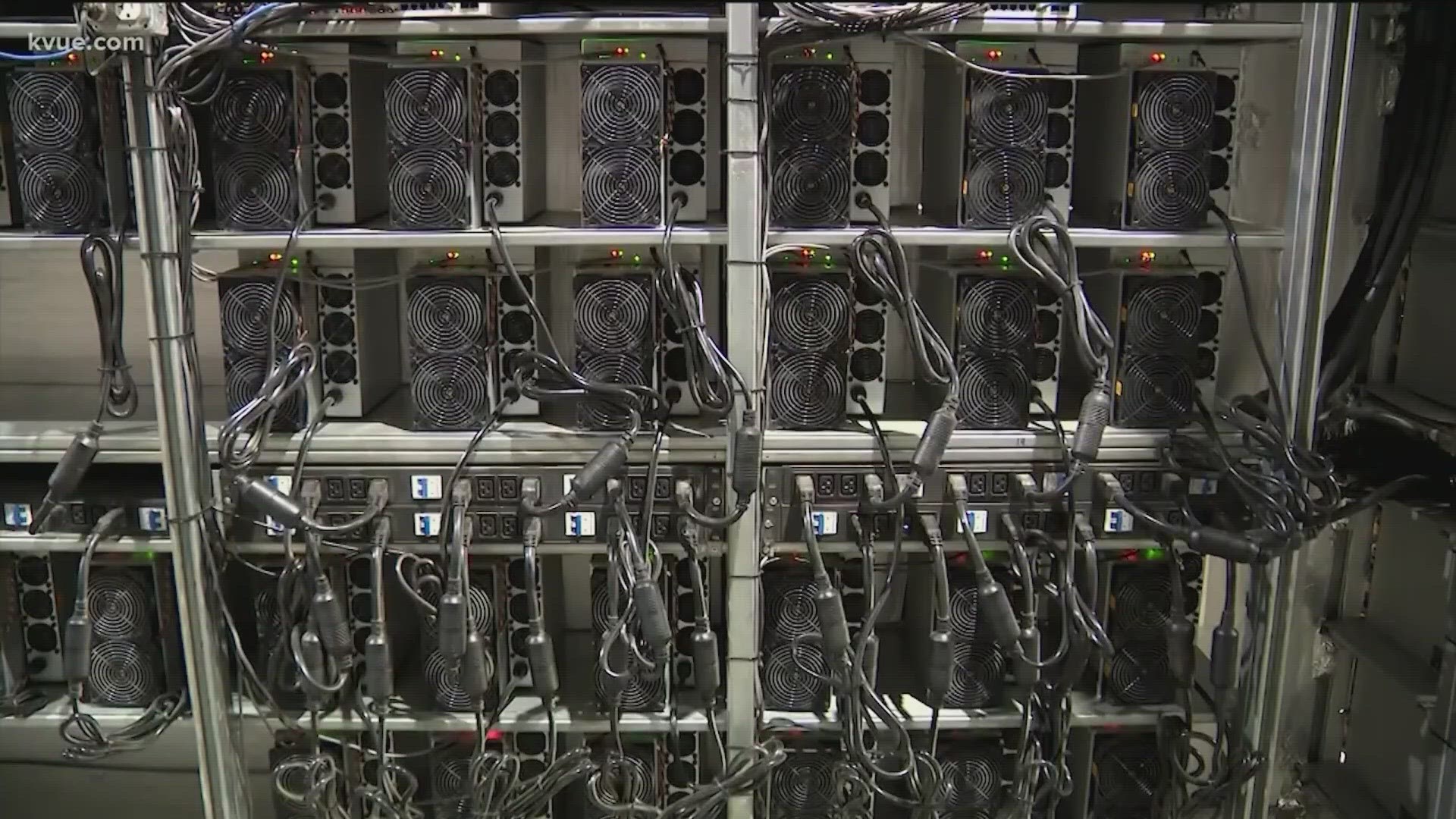AUSTIN, Texas — The cryptocurrency mining industry in Texas and the rest of the nation has expanded quickly over the past few years.
A significant criticism of the industry is the amount of energy the data centers could be consuming. Just last week, the U.S. Energy Information Administration (EIA) started performing an emergency survey to determine how the industry impacts grid stability in the U.S.
"We're just trying to get a handle on this sector's use of electricity – how much, where it's occurring, how might it affect the electric grid in the United States, and particularly in different regions of the country," Mark Morey, a U.S. EIA senior advisor, said.
Morey said before getting approval from the Office of Management and Budget to conduct the survey, officials did research and found there are at least 137 mining facilities in the U.S., with most in Georgia, New York and Texas, which has over 30 mining sites.
The EIA's analysis also showed that in 2023, the estimated U.S. electricity demand supporting cryptocurrency mining equals annual demand ranging from more than 3 million to more than 6 million homes. The low-end of the range would equal annual electricity usage for states such as Utah and West Virginia.
"This is quite strange," President of Texas Blockchain Council Lee Bratcher said. "The EIA does collect data, but they've never done it in this way. They've never been so specific, and they've also never targeted an industry so specifically."
Bratcher, whose organization represents a good chunk of mining companies in Texas, said the survey is too invasive, politically motivated and feels targeted because no other industry is required to do this particular survey.
"We're concerned that they could put pressure on some of these big energy companies to no longer have energy contracts with Bitcoin mining data centers," Bratcher said. "It really makes no sense, given that the reason for the survey was grid stability and AI data centers and cloud computing data centers were not included, which use far more energy and are far less flexible."
When Bratcher said flexible, he was talking about a mining operator's ability to quickly turn off during tight grid conditions to help lower demand or keep the grid from failing. It's called curtailing and is something they had to do just last month during the cold snap.
"We are exploring our legal options as to how to push back against this federal overreach," Bratcher said.
Federal officials said they do dozens of surveys, and this one is no different.
"We're hopeful we can work with companies in the cryptocurrency industry so we can provide the public with a clear understanding of the energy use from this sector, much in the same way we do with all the other industries," Morey said.
Bratcher said Texas has over 30 mining sites that do about 2400mw of bitcoin mining. Bratcher said Texas bitcoin miners consume about 2% of all energy on the Texas grid, but it is flexible.

